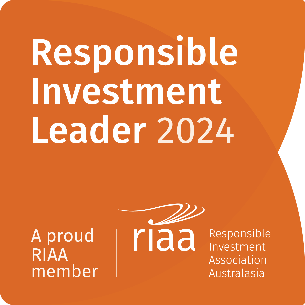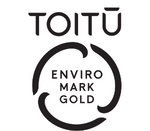A Year in Review

A Year in Review
At Devon our focus on generating attractive risk-adjusted returns for our clients is absolute. Unfortunately recent performance hasn’t been up to the standards that we set ourselves so we thought it would be useful this month to elaborate on what has been the cause of our underperformance and, most importantly, how we are positioned to address it. We are conscious of the dangers in focussing on short-term returns but we are very aware of the valuable lessons that be taken from every investment decision we make, good and bad. Keep in mind that even Warren Buffet doesn’t get it right all of the time. As highlighted recently by MFS, between December 1987 and December 2015 shares in Buffett’s investment company, Berkshire Hathaway, impressively generated an average annualised return of 16.4% p.a, compared to the S&P 500 Index which generated 10.6% p.a. But even he underperformed the S&P for a one year period 38% of the time, for three year periods 36% of the time, and for five year periods 23% of the time. The role of active investors can occasionally be very challenging over the short-term but our view has always been that one of the most rewarding factors in investing is patience.
Before delving into the detail of stock attribution it is worth refreshing our minds on the investment approach we follow at Devon. We aim to build portfolios of high quality businesses that are priced at a discount to their fair value. To do this we engage in detailed fundamental research with a strong focus on underlying cash flow. Valuation is very important to our process, however we are not a value manager in the traditional sense – we are happy to own businesses that have earnings multiples that appear high if we believe we have visibility of sustainable earnings that more than justify the current price. An example of this at the moment is Vista Group where the consensus 12-month forward price to earnings multiple is in the high 20s but we believe the market currently undervalues several businesses within the larger company that will, in time, deliver material profits. Our focus on valuation does mean that we will not typically own businesses where the market price implies very high levels of growth as our experience is that often the risk of that growth occurring is underestimated. We are particularly reluctant owners of stocks where earnings multiples have risen more than earnings. This has been the case broadly across the New Zealand and Australian markets over recent years but has been particularly apparent in specific stocks. An example is Mainfreight which has seen its PE multiple rise from just above 16x to over 20x over the last 12 months. What this means is that the market has essentially decided in that time that a given dollar of Mainfreight earnings is worth 25% more today than it was last September. Finally, we are extremely focused on capital preservation and we will avoid investing in stocks that may look reasonable on valuation metrics but we judge that there are excessive risks around the business model or earnings quality.
Turning now to understanding our performance at an individual stock level, let’s start with the stocks we have owned that have hurt returns.
Much of our disappointing performance has come from some of the investments that we have the highest level of long-term conviction in - Vista is a good example of this. Vista is a large position across all our funds and its weakness over the last year has been a significant detractor - the company’s share price has fallen 12.5% in the last month and 15.7% over the last year despite recently reporting first-half 2017 revenue growth of 23% and EBITDA growth of 74%. As discussed above we retain confidence in Vista and believe our patience will be rewarded as the market starts to value some of the optionality inherent in this business. The other key holding which has hurt recent performance is GTN. Again a large holding across the funds, GTN has been a net positive contributor since it was added post IPO in May of 2016 however concerns around its expansion into the United States, allied with illiquidity and forced selling has seen the stock fall 12.7% this calendar year. Both Vista and GTN, though very different businesses, have some strong similarities as investments that draw us to them: they each have wonderfully entrenched core operations in their respective markets that justify their current valuations (Vista in cinema and box office software, GTN in radio advertising) and both have additional businesses with significant intrinsic value that we believe the market is failing to value appropriately. The challenge for investors though has been to look through the recent short-term price performances and to appreciate the long-term intrinsic value that exists.
Sadly however we can’t say that every investment decision that has detracted from performance has been, in our opinion, a function of just short-term volatility. We have made some mistakes over the past year. Across some of the funds we owned Fletcher Building prior to its announcement that it had made significant losses on some of its construction contracts and the stock’s weakness has been a decent negative contributor to performance. While the construction losses were not easy to predict, we were remiss to not begin to at least reduce our positions around the end of last year when the share price was not only much higher (close to $11 versus a price at the time of writing of $8.23) but more importantly the PE multiple was around 16x – this is expensive for a cyclical construction and building supplies business. We do however believe the market response to the construction losses has been exaggerated as the company lost more than $2b of value on one-off losses of less than $300m. Although risks are always inherent within large scale construction, the businesses which drive most of Fletcher’s value have performed well and the company now looks reasonably priced. Consequently we have been adding it to portfolios or increasing weights in recent weeks.
A striking aspect of market behaviour in recent times has been the importance of “thematic” investing. Big picture ideas or long dated predictions have driven sentiment and stock prices. Z Energy, for example, has been besieged by concerns around the growth of electric vehicles yet on the most optimistic views it is several years away before petrol consumption peaks let alone ceases. Despite this Z Energy has been a reasonable performer, returning 10.1% year to date. We are not deaf to the arguments in favour of electrical vehicles and broadly agree that Z’s core business will ultimately either be radically different or (more likely) non-existent, but that doesn’t mean there isn’t still value in the business today. Another example has been the effect of Amazon’s impending launch in Australia and its effect on the Trade Me share price (down 15% in the last month). Amazon is a gargantuan entity that is causing all sorts of problems to traditional retailers around the world and it is not a distant threat – we expect it to launch in Australia in October. However none of Trade Me’s businesses operate outside New Zealand, the part of its business that is exposed (new goods sales) represents less than 12% of sales, and the threat to that business will require Amazon to distribute into New Zealand in a way that is currently far from clear. Amazon is clearly not to be underestimated and we know that Trade Me takes it seriously and will invest accordingly, but we suspect that much of the share price weakness has been driven by low quality thematic research that undervalues what is intrinsically a quality business.
The other side of the story of our performance versus the market has been the stocks we haven’t owned, the most important of which has been A2 Milk. This stock has rallied over 190% in the past year and although it has been disappointing to not have been exposed to these strong returns, it does provide an example of our focus on capital preservation and risk management. We have known and followed A2 for a number of years and our experience has been that the company’s ability to execute on ambitious growth plans has been very mixed. They have built a successful fresh milk business in Australia but forays into the UK and US have not (yet) worked well nor did the company’s attempt to sell infant formula in China by way of direct distribution with a joint venture partner delivered the results expected. The company’s dramatic earnings growth over the last couple of years has been driven by sales via the informal “daigou” channel i.e. principally Chinese nationals in Australia purchasing goods to re-sell into China. The dangers with this channel are many and varied – visibility of the end customer is extremely limited, buyer behaviour can be very divorced from underlying demand, the distribution chain is long, complex and expensive and is always prone to “channel stuffing”, and finally most of these sales are technically illegal and subject to enormous regulation risk. We may well be wrong about A2 and they may continue to rapidly grow sales and earnings from infant formulas sales into China but we simply could not get sufficient comfort in the risk profile of the business to expose our client funds to it.
After our recent period of weak relative returns we have subjected our investment approach to extensive review. Fundamentally we have great confidence in the personnel that we have at Devon and the process that we employ. We have recently hired the previous Head of Australasian Equities at ANZ to join us in 2018, as the Chief Investment Officer, and once he has arrived we believe that we will have one of the largest and most experienced investment teams in the market. We believe that the framework for a recovery in our investment performance is well established. The recent August reporting season was broadly positive across the funds and we remain confident that we have some very high quality investment ideas that are held at substantial discounts to their intrinsic value. Markets driven by thematics and multiple expansion are very challenging for those of us who focus on fundamentals and valuation and have a healthy scepticism of aggressive growth targets. Nevertheless we are confident that the time is not far off when patience will be rewarded.





